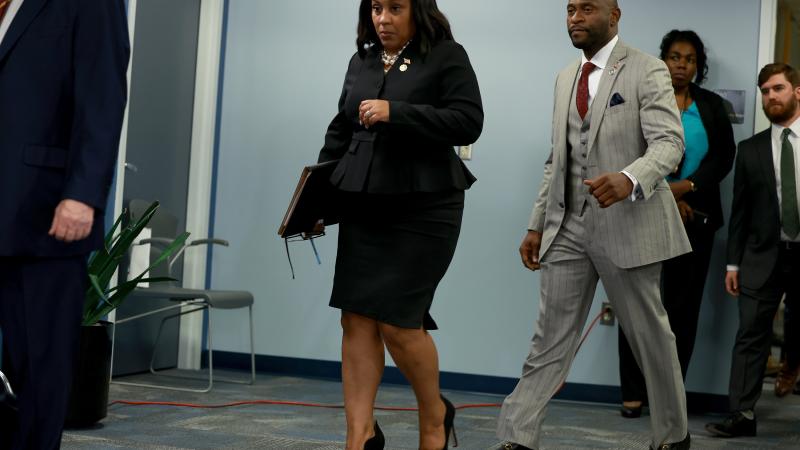Pro-energy group launches campaign warning Hill measure could lead to high consumer energy taxes
The PROVE IT Act directs the Department of Energy to study and report the average emissions intensity of two dozen energy products made in the U.S. and foreign countries.
The American Energy Alliance, a free-market energy advocacy group, is launching a campaign in Utah and Iowa against a bill they say will hurt consumers.
The PROVE IT Act directs the Department of Energy to study and report the average emissions intensity of two dozen energy products – including steel, aluminum, cement, natural gas and crude oil – made in the U.S. and foreign countries.
Reps. John Curtis, R-Utah, and Scott Peters, D-Calif., are the lead sponsors of the bipartisan House version of the bill that is expected to be introduced in the coming weeks, according to E&E News.
Sens. Kevin Cramer, R-N.D., and Chris Coons, D-Del., are sponsoring the Senate version.
Proponents of the bill argue that because American manufacturing is among the cleanest in the world, the U.S. has a carbon advantage. As other countries enact policies aimed at reducing the carbon intensity of imports, the data from the study will dispel misperceptions about the carbon footprint of American goods.
“The United States lives up to the highest environmental standards in the world, and the PROVE IT Act is an opportunity to bolster our advantage by backing it up with verifiable data,” Cramer said in a statement when the bill was introduced.
The AEA argues that the measure, if passed by Congress and signed it law, will produce data that could potentially lead to carbon taxes and tariffs, which would harm consumers.
“Congressman Curtis is leading the charge among Republican lawmakers to promote policies that would raise the cost of energy at a time when Utah families are already struggling with higher costs for gasoline, groceries, and many other household needs,” Tom Pyle, president of the AEA, said in a statement.
The alliance is launching a six-figure digital campaign in Utah and Iowa’s first congressional districts opposing the PROVE IT Act. The campaign will run for two weeks.
Rep. Mariannette Miller-Meeks, who replaced Curtis as chair of the Conservative Climate Caucus, appears to be distancing herself from the proposal, E&E News reports.
“Congresswoman Miller-Meeks is correct to be skeptical of this effort to lay the foundation for new, regressive energy taxes,” Pyle said, and asked Miller-Meeks to clarify her position on the bill.















